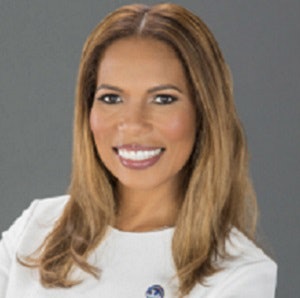Benedict College, the historically Black college based in Columbia, South Carolina, will phase out several of its majors in order to prepare students for the 21st Century job market, college leaders said.
 Dr. Rosyln Clark Artis
Dr. Rosyln Clark ArtisThe college will eliminate history, religion and philosophy, sociology, political science, transportation and logistics engineering, mathematics and economics due to the programs’ low student enrollment, low graduation numbers and uncertainty on job placement outcomes for students in the majors.
Instead, Benedict will focus on growing the engineering, biology, computer science and cybersecurity disciplines, said Benedict College president and CEO Dr. Roslyn Clark Artis.
“My vision is that Benedict be a best in class private [historically Black college and university] HBCU,” Artis said. “That means we will offer a high-quality education to a diverse population of students in a learner-centered environment that prepares them for the competitive 21st-century job market. Narrowing our focus will allow us to do that.”
Benedict’s latest changes to academic programming came after a year-long review and productivity analysis that analyzed “10-years’ worth of data on the number of students who choose, persist and graduate in each major,” Artis added.
Although leaders have also seen low numbers in the last decade in mathematics, chemistry and physics majors, these departments will remain intact as Benedict officials note that they are vital to the strength of the STEM disciplines and represent core competencies.
Students in the majors to be phased out will have the opportunity to finish their programs of study. As of now, “most faculty will remain with the college – the absence of the major certainly does not obviate the need for faculty teaching in the core disciplines,” Artis said.
Dr. D. Jason DeSousa, associate professor in the Department of Educational Leadership and Policy Studies at Howard University, called the decision by Artis to eliminate the majors a “win-win” for the institution and students.
Having studied higher education for more than 25 years, DeSousa sees the streamlining of academic programs as a means to give students a better return on their collegiate investment, while providing institutions with opportunities to better enhance student metrics around six-year graduation rates and retention rates.
“If students are selecting majors that they don’t see as something that is in their career path, or it’s not a compelling major that they see a pathway to a job, students may drop out of school after the first year,” DeSousa said. “Institutions that offer courses that are in the workforce demand areas will have a better chance of getting students from the concept of ‘time to degree’ to ‘time to earnings.’ That’s key.”
If done “right and thoughtfully,” cutting academic programs is also important for public education institutions to consider as their student metrics are tied to state and federal financial appropriations, DeSousa added.
For HBCUs in particular, he said, leaders cannot enroll students who are “academically adrift” and allow them to accumulate debt each semester to the point that they will be asked to leave.
“When that happens, students with considerable debt cannot access official transcripts necessary to transfer and in some cases needed for employment,” DeSousa said. “This practice, I consider institutional immorality.”
The fact that Artis has positioned Benedict’s academic offerings around 21st Century workforce needs in STEM and cybersecurity is a plus for DeSousa because it encourages students to select high-demand majors.
“Higher education has done a poor job of working with the workforce,” he said. “We need to do a better job at asking the workforce to join us and saying, ‘Hey, what kinds of majors do you want?’ ‘What kinds of majors are you looking for?’ ‘What kinds of skills are you looking for?’”
“If [Artis] has made a decision that she thinks that the majors that she’s keeping are productive, I think that that bodes well also in terms of time-to-earnings for the students at Benedict College,” DeSousa continued. “I think the president is forward-thinking on this … I think what’s she’s doing is something that is needed.”
Since assuming the presidency last year, Artis has made several institutional changes, including cutting tuition and raising admissions standards at Benedict. The latest programming change will play a role in attracting students to the college.
“I think our focus on high demand fields with clear job prospects upon graduation will strengthen our recruitment efforts,” Artis said.
Tiffany Pennamon can be reached at [email protected]. You can follow her on Twitter @tiffanypennamon.















